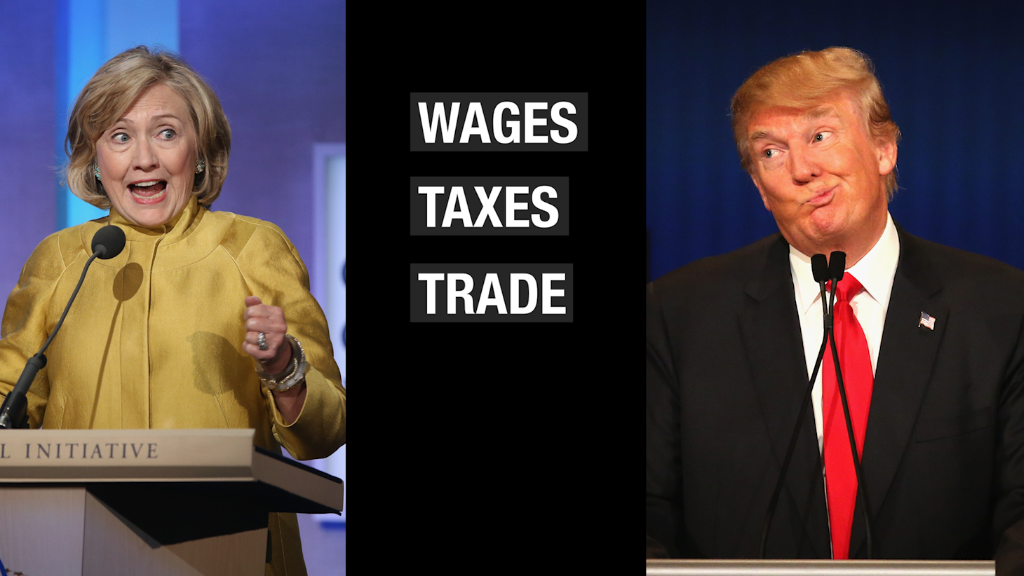
Donald Trump wants to crack down on Wall Street.
At Trump's urging, the GOP formally endorsed breaking up America's big banks Monday. It's almost like the Republicans were taking a page from liberal senators Bernie Sanders and Elizabeth Warren who have advocated for exactly that to ensure no bank is "too big too fail."
The official Republican platform for 2016 calls for bringing back the Glass-Steagall Act, a law put in place during the Great Depression to restrict banks from serving both Wall Street and Main Street. President Bill Clinton repealed the law in 1999.
In a sign of just how unpopular Wall Street is in America right now, reinstating the Glass-Steagall Act is in both the Republican and Democratic platforms.
Trump's campaign manager Paul Manafort told reporters it was Trump's idea to bring back Glass-Steagall and repeal Dodd-Frank, the Obama-era law to curb bad banking practices after the financial crisis.
"These are all things that Mr. Trump has spoken about on the campaign trail: the importance of breaking the gridlock, breaking up the rigged system, the rigged banking system, the rigged economic system, the rigged political system," Manafort said.
This kind of talk has confused Wall Street over what Trump really wants.
Related: The controversial Glass-Steagall Act...in 2 minutes
Big banks don't like the idea of Glass-Steagall returning because companies like JPMorgan Chase (JPM) and Bank of America (BAC) would likely have to break up and get smaller. Goldman Sachs (GS) called it a "surprising new position" for the GOP.
But Trump also wants to get rid of Dodd-Frank, a stance that most banks, large and small, support. Bank CEOs blame the law for raising their costs dramatically.
"The Dodd-Frank law, the Democrats' legislative Godzilla, is crushing small and community banks and other lenders," the GOP platform states. "We must overturn the regulatory nightmare."
Related: Former Citigroup CEO: Big banks don't work
Wall Street and the GOP are usually friendly with bankers giving a lot of money to Republican candidates, but not this year. Wall Street has given little to Trump so far, and hardly any bankers are attending the Republican convention in Cleveland.
Sanders made bringing back Glass-Steagall a key part of his platform for president. He often accused Hillary Clinton of not supporting it because of the millions of dollars in speaking fees she has received from Wall Street banks.
Trump will likely try to pick up where Sanders left off. The Democrats call for an "updated" version of the law since Clinton has repeatedly stressed that Wall Street today is more than just banks.
While there's a clear anti-Wall Street push in Election 2016, bankers aren't too worried about Glass-Steagall coming back.
"I think the chances of this happening are pretty slim. I can't see it getting through the senate," says Greg Valliere, chief strategist at Horizon Investments.
CNN's Tal Kopan contributed to this story.


